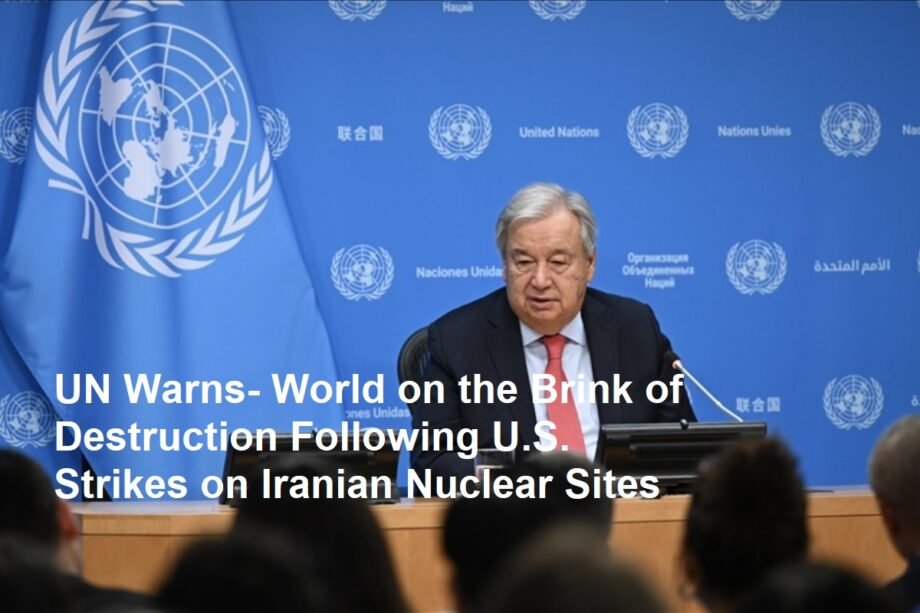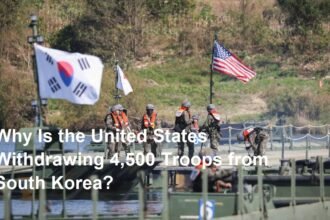Introduction
The recent U.S. military strikes on Iranian nuclear facilities have provoked a powerful response from the United Nations (UN), with officials warning that the world stands perilously close to the edge of catastrophic conflict. The United Nations Secretary-General has voiced grave concerns over the escalating tensions resulting from the bombing of Iran’s strategic nuclear sites, urging the global community to prioritize diplomacy and peace to avoid irreversible disaster.
UN’s Immediate Response to U.S. Attacks
Following the U.S. deployment of airstrikes under the command of former President Donald Trump targeting three key Iranian nuclear sites, the United Nations swiftly condemned the military action and issued a warning about the potential fallout. The UN stressed that such aggressive measures risk destabilizing the already fragile geopolitical landscape, pushing the world toward unprecedented levels of conflict.
The Secretary-General described the situation as “extremely alarming,” highlighting that the delicate balance of international peace is at risk, with possible ripple effects far beyond the Middle East.
The Warning: The World on the Brink of Destruction
The UN’s statement emphasized that the consequences of the U.S. strikes could extend beyond immediate military confrontations. The Secretary-General warned that the actions undertaken might escalate into a widespread conflict involving multiple global powers, endangering millions of lives and jeopardizing international security.
The rhetoric used by the UN underscores the severity of the current crisis, emphasizing the urgent need for global leaders to act responsibly and consider the devastating long-term consequences of continued military escalation.
Calls for Diplomatic Resolution
In response to the rising tensions, the UN has called for an immediate cessation of hostilities and urged all parties—especially the U.S. and Iran—to return to the negotiating table. The organization advocates for diplomatic dialogue as the only viable path to restore calm and prevent further escalation that could spiral into a global conflict.
The UN has proposed expedited peace talks under its mediation, emphasizing that multilateral engagement remains vital for preserving regional stability and protecting global peace.
Geopolitical Implications and Global Reactions
The attacks on Iranian nuclear sites have heightened diplomatic friction among world powers. While some allies of the U.S. have expressed conditional support for the strikes as measures to curb Iran’s nuclear ambitions, many countries remain deeply concerned about the risk of war escalation.
Numerous nations have echoed the UN’s call for restraint, warning that unchecked military actions could trigger a chain reaction of retaliatory attacks and proxy conflicts throughout the Middle East and beyond.
Conclusion
The United Nations’ stark warning that the world is on the brink of destruction following the U.S. strikes on Iranian nuclear sites highlights the gravity and urgency of the current geopolitical crisis. The next steps taken by international stakeholders will be pivotal in either steering the world away from widespread conflict or further escalating an already volatile situation.
Vigilant global monitoring, combined with proactive diplomatic efforts, is essential to managing the fallout and securing a peaceful resolution. The world community now watches closely as the events around this crisis continue to unfold.









